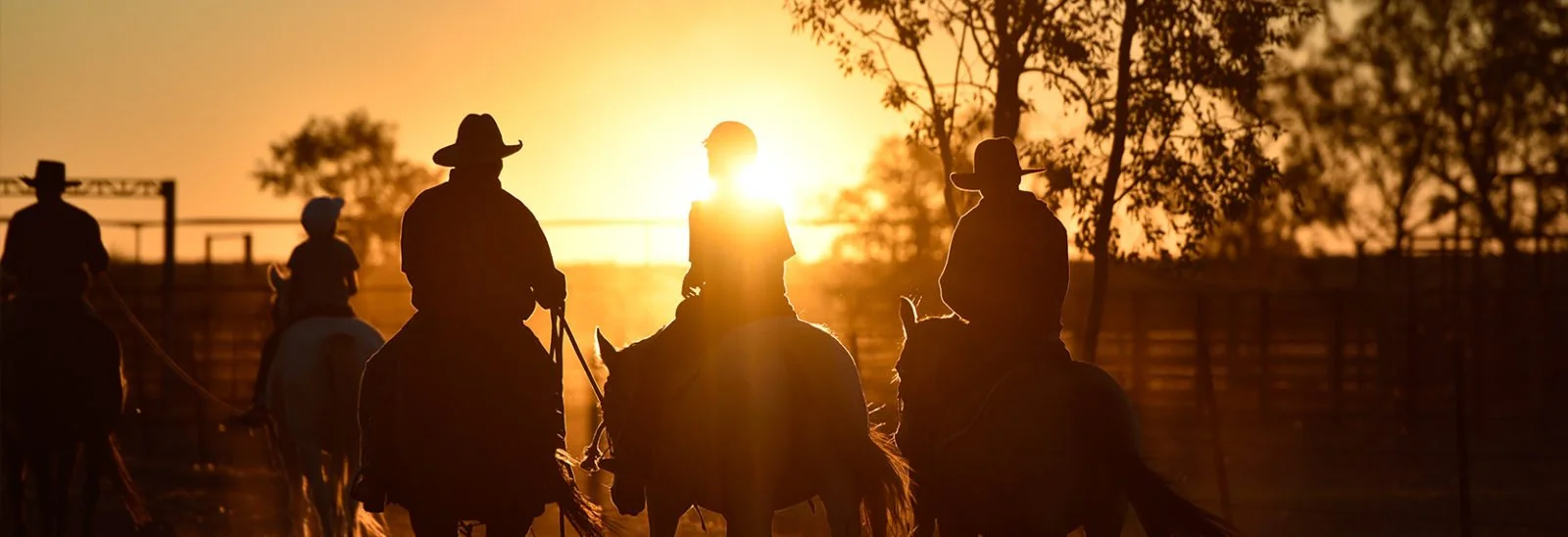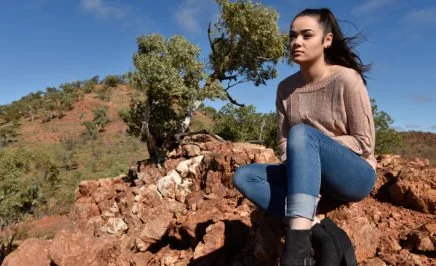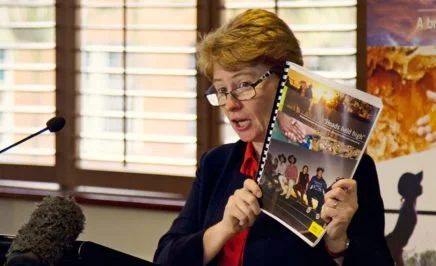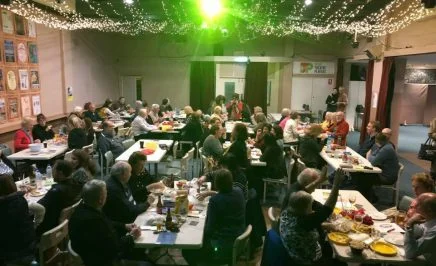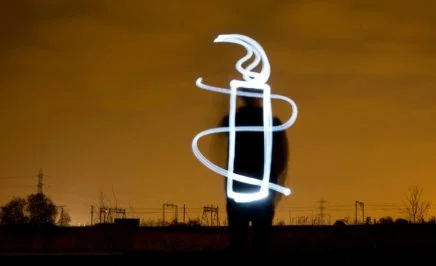Indigenous programs are key to Indigenous success. This Indigenous-led community program is making a difference for their kids in Mt Isa.
© WAYNE QUILLIAM / AI
The Mona Horsemanship Program is just one of the many Indigenous-designed and led community programs that nurture kids’ potential and provides a successful alternative to children’s prisons. Now, these Indigenous leaders are asking for the government’s support in keeping their program going.
Patrick Cooke, Angela and David Sammon, and Rex Ah-One began Mona Aboriginal Corporation’s cultural horsemanship program in response to a lack of culturally appropriate healing programs. Their program focuses on restoring pride to Indigenous young people with spiritual guidance and support from Elders and program mentors.
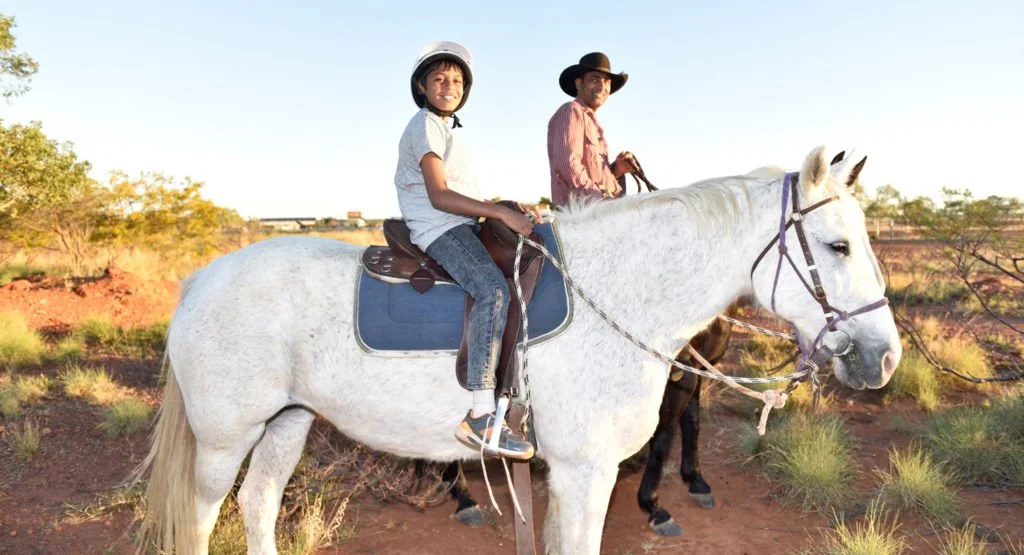
“What’s missing in a lot of children’s lives is getting back to country and back to culture. A lot of non-Indigenous programs lack the cultural connectivity,” says Patrick Cooke, Chairperson of Mona Corp and Aboriginal man from the Mount Isa region.
“What’s missing in a lot of children’s lives is getting back to country and back to culture. A lot of non-Indigenous programs lack the cultural connectivity.”
Patrick Cooke, Chairperson of Mona Corp
The Cultural Horsemanship Program runs for 15 weeks and teaches children and young people respect, mechanical training and skills, meal preparation, fencing and yard building, animal husbandry, cultural education and skills such as hunting and gathering.
After an initial trial in 2012, a program evaluation showed clear indicators of success, including cost-effectiveness and behavioural changes.
Nivea’s story
16-year-old Aboriginal, Torres Strait and South Sea Islander girl, Nivea*, had been having a hard time at home.
“I didn’t really have anyone to look up to once Mum moved away,” she said. “I was hanging around the wrong crowd, going to parties… I didn’t really like drinking but that’s what they did for fun.”
“I didn’t really have anyone to look up to once Mum moved away. I was hanging around the wrong crowd, going to parties… I didn’t really like drinking but that’s what they did for fun.”
Nivea, a young Aboriginal, Torres Strait and South Sea Islander girl
Nivea ended up with a warning from police after being with her friends when they were stealing. But her situation turned around once she started going out on country with the Mona team.
“It’s been way better – I get in less trouble… I come out here to the station to work with them. You have to get up early but it’s better. You learn all this new stuff and meet new people.”
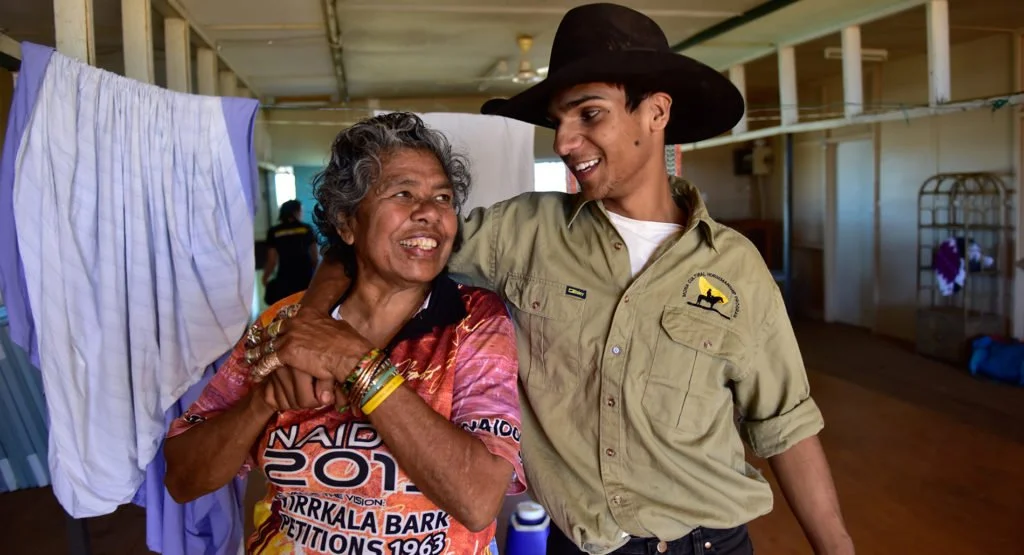
Curtis’ story
17-year-old Curtis* had a difficult time after leaving boarding school but found strength at Mona.
“Every time I come out bush it’s just good – it gets me away from all the bad stuff. When you are out bush you got nothing to do but working… most boys don’t get into mischief out here because they’re away from town.”
“When you are out bush you got nothing to do but working… most boys don’t get into mischief out here because they’re away from town.”
17-year-old Curtis
Mentor at Mona, Warumugu man Mark Johnny, says he saw a lot of change in Curtis through the program. “I reckon it’s a good project getting young people doing something like this – working in their own country and land or even working for someone on another land, the same time they can learn the cultural side of the land, how to look after it, and how to work properly.”
In the future, Curtis wants to do stock work and be a manager. “I mainly look up to David [Sammon], he takes a lot of young fellas out bush and helps them out.”
Funding desperately needed
Since 2013, Mona Corporation has repeatedly sought funding but to no avail. The program remains unfunded.
“Tomorrow another kid will commit suicide, another child will go to jail, another generation will be lost. If we could save the life of one child, that’s a generation,” says co-founder, Jingili Mudburra woman Angela Sammon.
“Our kids should be shining, they should be walking with their heads held high.”
“Our kids should be shining, they should be walking with their heads held high.”
Angela Sammon, mona corporation co-founder
Patrick Cooke says he hopes the program can help the next generation: “Our way forward from this is about empowering our youth of today, for tomorrow. It’s about building the capacity, not only of youth but of families, to strive toward the future.”
We’re calling on the Queensland Government to fund more Indigenous-designed and led programs for kids at risk of being sent to prison.
Read more in our latest research report.
